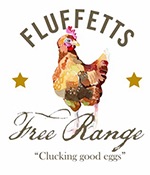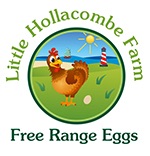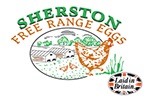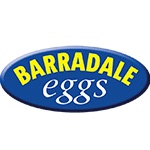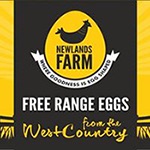In January ’22, David Spackman wrote about the Pacific trading situation and the UKEP/LIB and industry concerns about the import of eggs from other countries that would not meet our high standards or our production regulations…
CPTPP
The last major member of the Pan Pacific trading group is Canada.
Realistically, they are the only member who could export eggs to the EU and UK, if they can get their stocking densities in cage free to match.
Over the past 50 years, Canada claims to have increased egg production by 50%, while at the same time having a 50% smaller environmental impact. But, this has been in cages, whilst changes are ahead for them as with the rest of the world’s egg production, driven by retail and consumer demands.
Currently, Canada has 25.8 million layers on 1,000+ farms. 84% of the hens are in cages, of which, 66% are conventional and 18% enriched colony.
Production increased by 2.1% in 2020 on a quota system.
Per capita consumption is 242, and cost per dozen in 2020/21 was less than stewing beef, pork chops or poultry meat.
Apart from the 81% less land used, as a result of adopting cages, 69% less water, 41% less energy, 68% lower emissions of nitrogen and phosphorous and 72% less greenhouse gases, are claimed. Much of this may be reversed by abandoning cages, which is why the changes are so slow.
Changing feed consumption has been the most important factor in reducing the supply chain footprint.
Canada has now adopted five pillars of sustainability:-
- Protecting the health and welfare of hens.
- Delivering safe, high-quality eggs
- Finding new ways to make products more sustainable
- Enhancing the wellbeing of others
- By empowering people
Conversion from conventional cages has been set to be achieved by 2031, or they must be provided with 34% more space, ie increase to 580cm² by 1st July, 2031.
All hens must be out of conventional cages ultimately, by 2036.
Birds must have 750cm² in enriched cages, single-tier, all litter barn must have 1,900cm² (5.25 birds/m²) single-tier litter and flooring must have 929cm² (11 birds/m²) as will multi-tier units.
With the exception of all litter, none would allow export to the UK.
The Canadian government certainly help producers. It has, through it’s “Poultry and Egg On-Farm Investment Program” provided nearly $647 million to support poultry and egg farmers.
NOW
Laid In Britain, the egg industry and welfare bodies have voiced fresh concerns over the impact the new trans-Pacific trade deal could have on UK food standards.
They all said the government had “ignored” industry warnings that the recently agreed Comprehensive and Progressive Agreement for Trans-Pacific Partnership (CPTPP) would allow the import of eggs from countries using conventional battery cage systems made illegal in the UK in 2012.
The UK egg sector spent more than £400m to transition to an enriched cage system following the ban, while most major retailers have now made commitments to move out of caged hen housing systems altogether by the middle of the decade.
Government ministers were slammed by all for ignoring the sector’s warnings by not giving eggs and egg products Sensitive Product Status in the trade deal – which retains import tariffs on products that do not meet the UK’s standards – as it urged ministers to reconsider their decision before the CPTPP was signed on 16 July.
Failing to give the sector this status would see import tariffs from the CPTPP’s 11 member states phased out over a 10-year period, they added, potentially opening the UK market up to eggs produced to significantly lower welfare standards than in the UK.
The danger to British consumers was that egg products could be imported from countries like Mexico, which almost exclusively relies on battery cages for egg production, they warned.
A fifth of eggs produced in the UK are used for egg products. “If the UK egg processing market was taken by third countries, then British egg processors would cease business and simply become traders,”.
The result would be no outlet for the 8%-10% of a hen’s production which is Class B (plus Class A eggs sold to processors), immediately requiring disposal at a cost to the egg producer.
This would affect all egg producers (including those who have invested in free-range). And if such a situation were to play out, producers would need to raise prices to consumers to remain in business. This would result in consumers paying more for eggs, the opposite of what the government was seeking to achieve through free trade agreements.
This particularly affected the egg products sector, which could see the importation of low welfare eggs.
And without adequate tariffs to only allow imported eggs produced to UK standards, “the doors will be wide open for powdered and liquid eggs from countries with lower or no animal welfare standards”, said Dr Nick Palmer, head of Compassion in World Farming UK.
“This is not what UK consumers expect of our government, which promotes high standards of hen welfare, environmental protection and food safety,” he added.
His comments were echoed by David Bowles, RSPCA head of public affairs, who said agreeing the deal in its current form meant the government was firing a starting gun “on a race to the bottom for our animal welfare standards”.
The intervention follows an earlier warning in April by the RSPCA that the CPTPP was a “nail in the coffin for animal welfare standards” due to the prevalence of production standards illegal in the UK among its member states. Key examples included battery cages, in addition to sow stalls.
But in response, a Department for Business & Trade spokesman said the RSPCA’s claims were untrue.
“The UK has not lowered our food, animal welfare or environmental standards in order to accede to CPTPP, and there is absolutely nothing in the agreement which would require us to lower these standards,” he said.
“Without exception, all imports into the UK must comply with our existing import requirements.”
Criticism of the impact of the CPTPP follows similar concerns over the government’s Liz Truss-negotiated post-Brexit trade agreements with Australia and New Zealand, which were described last November by former environment secretary George Eustice as poor deals for the UK.
“The truth of the matter is that the UK gave away far too much for far too little in return,” Eustice said in a Commons speech.
The UK Egg Industry fought to get the government not to sign the trade agreement without giving Sensitive Product Status to eggs and egg products, however, the Protocol of Accession was signed on 16th July 2023 and once the UK and CPTPP parties have finished their legislative processes, entry into force of the agreement will take place, which is expected to happen in the second half of 2024.

